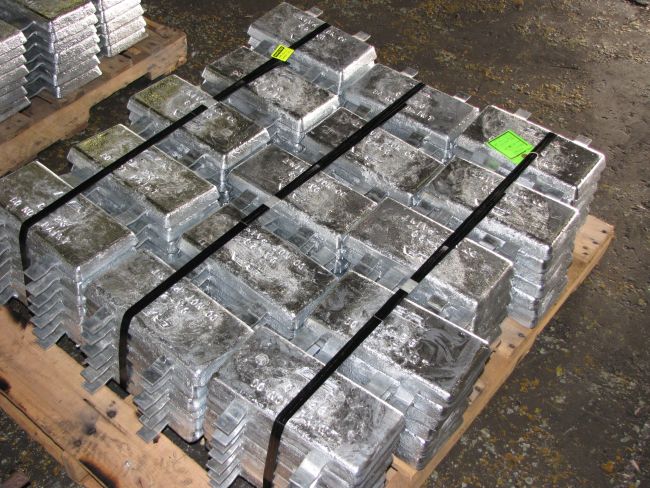A zinc anode is a type of sacrificial anode used to prevent corrosion through cathodic protection. It is also classified as a galvanic anode, with the other galvanic anodes being made from aluminum or magnesium. A zinc anode’s protective properties result from a strongly negative reduction potential, which is more negative than the metal it is protecting. Oxidants, which corrode metals, will oxidize the zinc anode rather than the protected metal structure, thus preventing the structure from being corroded.
These type of materials are known as sacrificial anodes because they release electrons, causing the slow corrosion of the anode in place of the actual metal in use, which is less negatively charged.
Zinc make a great choice for a sacrificial anode because it’s a highly active metal that is capable of being sacrificed. Zinc anodes are recommended for salt water applications. They are most commonly used in marine applications, such as on boat hulls, tanks, rudders and piers. They are also commonly used for underground tanks and piping. – Corrosionpedia
Sacrificial Anodes - Zinc Anodes
At Cathtect USA, we offer Zinc Anodes that meet or surpass industry standards. Our Zinc Anodes are available for various applications, including:
- Zinc Hull Anodes: Designed to protect ships, barges, and tankers from corrosion. We provide different configurations, including weld-on and bolt-on mounting systems.
- Zinc Ballast Tank Anodes: Primarily used on large vessels and tankers. We offer several configurations for various mounting options, such as welding or bolting onto the structure.
- Zinc Anodes for Bulkheads: Suitable for use on walls within the hull of a ship, vehicle, or container where cathodic protection is necessary.
- Zinc Anodes for Piers and Pilings: Used around docks and harbors.
- Zinc Bracelet Anodes for Pipelines: Employed in underground, under mud or under seawater pipelines.
- Zinc Heat Exchanger and Condenser Anodes: Specifically designed for heat transfer equipment.
- Zinc Soil Anodes: Used for objects underground such as storage tanks, containers, and buried structures where soil conditions require Zinc Anodes.
- Zinc Anodes for Other Applications: Available in plate, disk, or other geometries as per the requirements.

Zinc anodes share similar benefits to other galvanic anodes, such as:
- No external power source is needed
- Easy to install
- Low voltage
- Low maintenance
- Low risk of over-protection
However, there are also some drawbacks to consider, such as:
- Ineffective in highly resistive environments
- The need for electrical isolation from other structures
- Current capacity limitations
- Heavy weight
- Possible interference with water flow.
Zinc is utilized in a broad range of applications, including metal products, rubber, and medicines. Approximately 75% of zinc usage is in the form of metal, primarily as a coating and anodes to safeguard iron and steel against corrosion, as an alloying metal to produce bronze and brass, as a zinc-based die casting alloy, and as rolled zinc. The remaining 25% is employed as zinc compounds, predominantly by the rubber, chemical, paint, and agricultural sectors.












